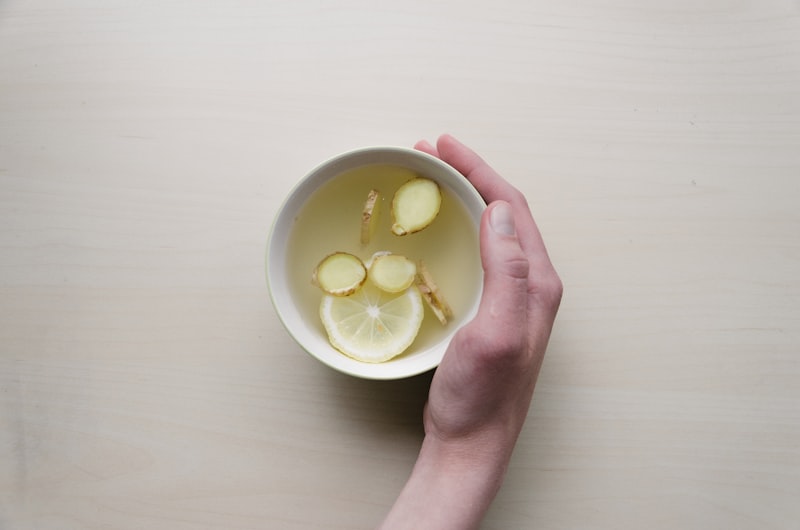Feeling overwhelmed by the demands of daily life is something many of us can relate to. Juggling work, family, and personal responsibilities can take a toll on our mental well-being. However, there are simple yet effective strategies you can incorporate into your daily routine to help maintain a healthy mind.
Firstly, start your day with a moment of mindfulness. Take a few minutes each morning to focus on your breathing or practice a short meditation. This can set a positive tone for the day ahead, helping you to approach challenges with a clearer mind.
Physical activity is not only beneficial for your body but also for your mental health. Whether it’s a brisk walk during your lunch break or a yoga session in the evening, exercise releases endorphins that boost your mood and reduce stress.
Another key aspect of mental well-being is maintaining a balanced diet. Fuel your body with nutritious foods like fruits, vegetables, whole grains, and lean proteins. Avoid excessive caffeine and sugar, as they can contribute to feelings of anxiety and irritability.
In today’s fast-paced world, it’s easy to feel isolated. Take time to nurture your relationships with friends and family. Reach out to loved ones for support or simply enjoy a conversation over a cup of coffee. Social connections are vital for our emotional health.
Managing stress is essential for maintaining good mental health. Find healthy ways to unwind and relax, whether it’s reading a book, listening to music, or practicing a hobby you enjoy. Taking breaks throughout the day can also help prevent burnout.
Lastly, don’t hesitate to seek professional help if you’re struggling. Therapy or counseling can provide valuable tools and support for managing stress, anxiety, or other mental health issues. Remember, taking care of your mental health is just as important as taking care of your physical health.

Incorporating these tips into your daily life can help you build resilience and maintain a positive outlook, even during challenging times. Prioritize your mental well-being and make self-care a priority every day.
Mastering Mindfulness: Practical Tips for Daily Mental Wellness
One of the fundamental aspects of mindfulness is being fully present in the moment. This means consciously paying attention to what you are experiencing right now, without judgment. It’s about acknowledging your thoughts, feelings, and surroundings without letting them overwhelm you. Imagine your mind as a clear blue sky, where thoughts and emotions are like clouds passing by. Mindfulness teaches you to observe these clouds without getting swept away by them.
A simple yet effective way to start practicing mindfulness is through focused breathing exercises. Take a few minutes each day to sit quietly and pay attention to your breath. Notice how it feels as you inhale and exhale. When your mind starts to wander—which it inevitably will—gently bring your focus back to your breath. This practice not only calms the mind but also trains it to stay present.
Another powerful tool in mastering mindfulness is body scan meditation. This involves systematically focusing your attention on different parts of your body, from your toes to the top of your head. As you scan each area, notice any sensations—whether they are tension, warmth, or relaxation. This practice enhances body awareness and helps release physical and mental stress.
Incorporating mindfulness into daily activities is also crucial for sustained mental wellness. Whether you’re eating, walking, or even washing dishes, try to do so with full awareness. Notice the textures, smells, and flavors. Engaging all your senses in the present moment enhances your overall experience and reduces stress.
Ultimately, mastering mindfulness is a journey that requires patience and commitment. By practicing these practical tips consistently, you can cultivate a greater sense of inner peace, resilience, and emotional balance in your daily life. Mindfulness isn’t just about finding moments of calm; it’s about transforming how you engage with the world around you, one mindful breath at a time.
Unlocking Serenity: 5 Easy Steps to Improve Your Daily Mental Health
In today’s fast-paced world, finding moments of calm and peace can feel like a luxury. However, enhancing your daily mental health doesn’t have to be complicated. By incorporating simple yet effective practices into your routine, you can cultivate a sense of serenity and well-being each day.
-
Start Your Day with Mindfulness: Begin each morning with a few minutes of mindfulness or meditation. Find a quiet space, close your eyes, and focus on your breath. Notice how your body feels and let go of any tension. This practice sets a positive tone for the day ahead, helping you approach challenges with clarity and calmness.
-
Nourish Your Body and Mind: A healthy diet is not just beneficial for your physical health but also crucial for your mental well-being. Incorporate nutritious foods like fruits, vegetables, whole grains, and lean proteins into your meals. Hydration is also key—drink plenty of water throughout the day to keep your body and mind refreshed.
-
Move Your Body, Lift Your Mood: Physical exercise is a powerful tool for improving mental health. Whether it’s a brisk walk, yoga session, or dance class, find an activity that you enjoy and make it a regular part of your routine. Exercise releases endorphins, which are natural mood lifters, and helps reduce stress levels.
-
Create Moments of Stillness: In the midst of busy schedules, carve out moments of stillness for yourself. This could be as simple as sitting quietly with a cup of tea, taking a nature walk, or listening to calming music. These pauses allow you to recharge mentally and emotionally, promoting a sense of inner peace.
-
Practice Gratitude and Positivity: Cultivating a positive mindset can significantly impact your mental health. Each day, take a moment to reflect on things you are grateful for. Keep a gratitude journal or simply mentally note three things that brought you joy or satisfaction. Focusing on the positive aspects of your life enhances resilience and fosters a more optimistic outlook.
Small Changes, Big Impact: How Daily Habits Shape Mental Wellbeing
Ever wondered how the little things we do each day affect our mental health? It turns out, our daily habits play a crucial role in shaping our overall wellbeing. From the moment we wake up to the time we go to bed, every action we take can either contribute positively or negatively to our mental state.
Take morning routines, for example. Starting your day with a few minutes of mindfulness or stretching can set a positive tone for the rest of the day. These small, intentional actions help reduce stress and increase focus, laying the groundwork for a productive day ahead.
Similarly, how we fuel our bodies matters. Eating nutritious meals and staying hydrated not only supports physical health but also impacts our mood and cognitive function. Foods rich in omega-3 fatty acids, like salmon or walnuts, are known to promote brain health and uplift mood.
Movement is another key factor. Regular exercise releases endorphins, the feel-good hormones that boost mood and reduce feelings of anxiety or depression. Whether it’s a brisk walk during lunch break or a yoga session before bed, incorporating movement into your daily routine can significantly improve mental wellbeing.
Even our sleep habits play a role. Quality sleep is essential for mental and emotional resilience. Establishing a consistent sleep schedule and creating a calming bedtime ritual signal to our brains that it’s time to unwind and recharge.
In essence, transforming our mental wellbeing doesn’t always require drastic changes. By making small adjustments to our daily habits—like practicing mindfulness, eating well, staying active, and prioritizing sleep—we can cultivate a more positive mindset and resilient emotional state. These seemingly minor actions, when practiced consistently, can lead to profound improvements in our overall mental health.
From Stress to Serenity: Daily Practices to Boost Mental Resilience
Feeling overwhelmed by life’s challenges? Transforming stress into serenity might seem like a lofty goal, but with consistent daily practices, boosting your mental resilience becomes achievable. Mental resilience isn’t just about bouncing back from adversity; it’s also about thriving in the face of challenges.
One effective daily practice is mindfulness meditation. Taking just a few minutes each day to focus on your breath and be present in the moment can significantly reduce stress levels. It’s like giving your mind a refreshing break amidst the chaos of daily life, allowing you to regain clarity and perspective.
Exercise is another powerful tool. Whether it’s a brisk walk, a yoga session, or hitting the gym, physical activity releases endorphins that elevate mood and reduce stress hormones. Plus, the sense of accomplishment from meeting fitness goals boosts confidence and resilience.
Nurturing positive social connections is equally crucial. Humans are social beings, and meaningful interactions with friends, family, or community members provide emotional support and a sense of belonging. Sharing laughter or discussing challenges with trusted individuals can lighten the mental load and foster resilience.

Cultivating a gratitude practice can also work wonders. Taking time each day to reflect on things you’re thankful for shifts your focus from stressors to positive aspects of life. It rewires your brain to notice and appreciate the good, even in tough times.
Lastly, don’t underestimate the power of a good night’s sleep. Quality sleep rejuvenates both body and mind, enhancing cognitive function and emotional stability. It’s during sleep that our brains process and consolidate memories, preparing us to tackle new challenges the next day.
Incorporating these daily practices into your routine can gradually build mental resilience, enabling you to navigate life’s ups and downs with greater ease and serenity.
Navigating Emotions: Effective Strategies for Daily Mental Health
Understanding and managing our emotions is a crucial aspect of maintaining good mental health. Whether it’s dealing with stress, anxiety, or just the ups and downs of daily life, having effective strategies can make a significant difference in how we feel and function. Here are some practical tips to navigate your emotions and promote better mental well-being:
-
Acknowledge Your Feelings: The first step in managing emotions is to recognize and acknowledge what you’re feeling. Whether it’s joy, sadness, anger, or frustration, allowing yourself to feel without judgment is important. It’s okay to not always be okay.
-
Practice Mindfulness: Mindfulness involves staying present and aware of your thoughts and feelings without getting overwhelmed by them. Techniques like deep breathing, meditation, or simply focusing on the present moment can help reduce stress and improve emotional clarity.
-
Develop Healthy Coping Mechanisms: Instead of resorting to unhealthy habits like excessive drinking or binge eating, find positive ways to cope with difficult emotions. This could be through exercise, creative activities like painting or writing, or talking to a trusted friend or therapist.
-
Build Emotional Resilience: Resilience is the ability to bounce back from adversity. Strengthening your resilience can be achieved by nurturing supportive relationships, maintaining a positive outlook, and learning from setbacks rather than letting them define you.
-
Set Boundaries: Learning to say no when you need to and setting boundaries in relationships can prevent feelings of resentment and overwhelm. Respecting your own limits is crucial for maintaining emotional balance.

Seek Professional Help When Needed: If you’re struggling to manage your emotions or they’re significantly impacting your daily life, don’t hesitate to seek help from a mental health professional. Therapy can provide valuable tools and support in navigating complex emotions.
-
Practice Self-Compassion: Be kind to yourself, especially during difficult times. Treat yourself with the same empathy and understanding that you would offer to a friend facing similar challenges.
Navigating emotions is a lifelong journey that requires patience and practice. By incorporating these strategies into your daily routine, you can cultivate a healthier relationship with your emotions and promote overall well-being. Remember, it’s okay to ask for help when you need it, and small steps towards emotional awareness can lead to significant positive changes in your life.
Morning Rituals for Mental Clarity: Your Daily Guide to Inner Peace
Do you often wake up feeling overwhelmed by the day ahead? Establishing morning rituals can be the key to finding inner peace and mental clarity. These rituals are not just routines; they are powerful habits that can set a positive tone for your entire day.
Imagine starting each morning with a gentle stretch, allowing your body to awaken gradually like a flower unfolding its petals to the morning sun. This simple act can signal to your mind that it’s time to embrace the day ahead with calmness and intention.

As you move through your morning, consider the impact of incorporating mindfulness practices. Take a few moments to sit quietly, focusing on your breath. This practice can help center your thoughts and quiet the mental chatter that often clouds our minds in the rush of daily life.

Another effective ritual is to journal your thoughts and intentions for the day. Pouring your thoughts onto paper can be incredibly cathartic, helping you clarify your goals and priorities. It’s like clearing away the clutter on your desk before starting work—a clear space for clear thinking.
Hydrating your body with a warm cup of herbal tea or water infused with lemon is also a gentle way to nurture yourself in the morning. This simple act of self-care can replenish your energy and provide a moment of tranquility before the busyness of the day begins.
Lastly, consider incorporating movement into your morning routine. Whether it’s a brisk walk outdoors, a yoga session, or a few minutes of stretching exercises, physical activity can invigorate both your body and mind, setting a positive tone for the hours ahead.
By embracing these morning rituals, you’re not just going through the motions—you’re creating a sacred space for yourself, a time to nourish your soul and set the stage for a day filled with clarity and purpose. Start small, experiment with what works best for you, and watch as these simple rituals transform your mornings into moments of peace and empowerment.
This article focuses on morning rituals for mental clarity, emphasizing the importance of establishing positive habits to start the day with a clear mind and peaceful outlook.
Frequently Asked Questions
What are practical daily habits to improve mental health
Discover effective daily habits that can significantly boost your mental health. Learn simple practices to integrate into your routine for improved well-being.
How can I create a supportive environment for my mental well-being at home and work
Learn practical tips to foster a supportive environment for your mental well-being at both home and work. Discover strategies to manage stress, promote positive thinking, and maintain a healthy work-life balance. Implementing these practices can enhance your overall mental health and productivity.
Why is sleep important for mental well-being, and how can I improve it
Discover why sleep is crucial for mental well-being and effective ways to enhance it. Explore tips for better sleep hygiene and its profound impact on cognitive function and emotional balance.
How can I manage stress and anxiety on a daily basis
Learn effective daily strategies to manage stress and anxiety with practical techniques such as mindfulness, deep breathing exercises, physical activity, and maintaining a balanced routine. Implementing these habits consistently can help alleviate daily stressors and promote overall well-being.
What role does diet and exercise play in maintaining good mental health
This FAQ answers how diet and exercise contribute to maintaining good mental health. It provides clear, concise information on the impact of nutrition and physical activity on mental well-being.


